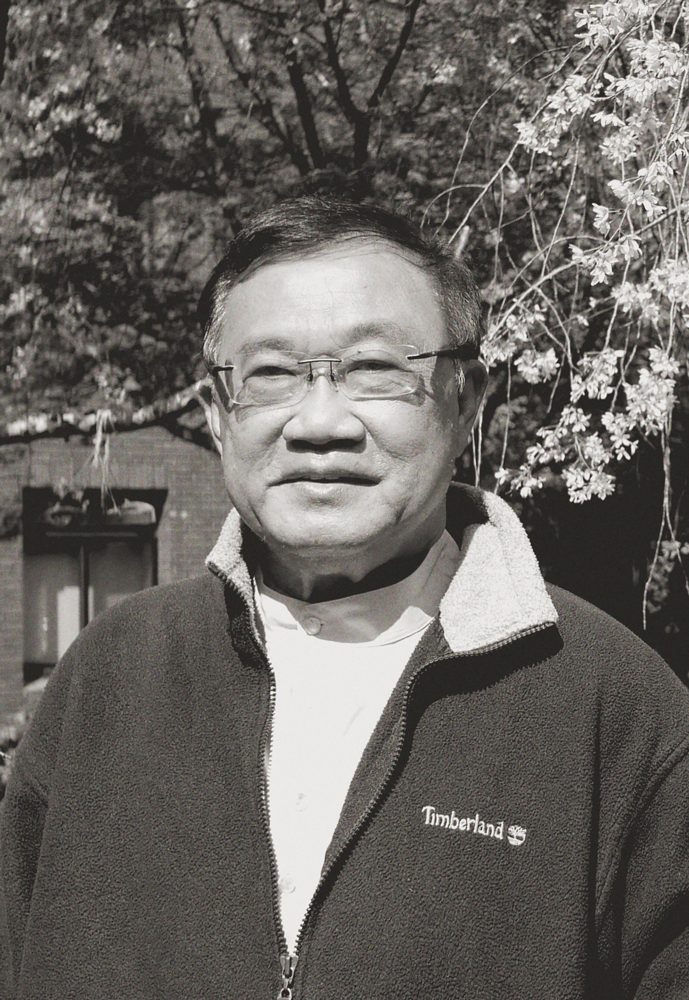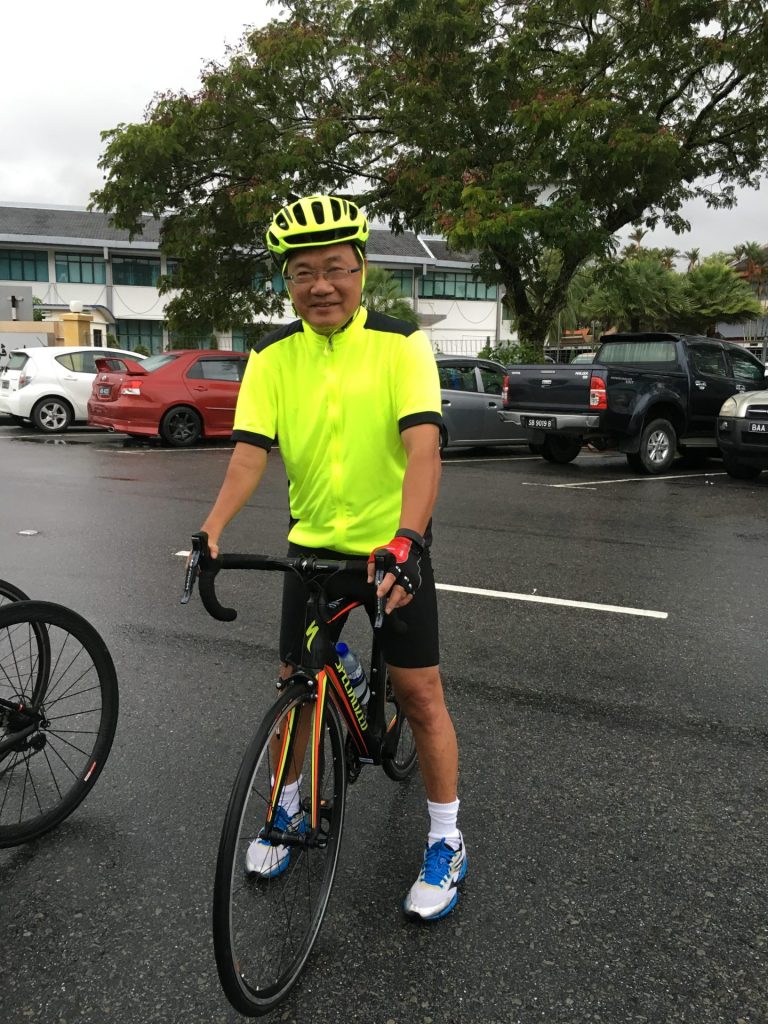Tong, Chee Kiong
VISITOR’S VOICE
Interview with Tong Chee Kiong »
National University of Singapore

What are your favorite things?
✔ Cycling: I am focused on road cycling, with long trips on the weekends
✔ Tennis: I play tennis twice a week
Interview
The Chinese in Southeast Asia
01
Please tell us about your research.
An anthropologist is, in the end, studying oneself. I study the Chinese in Southeast Asia. I began with an interest in the religion of the overseas Chinese, first researching Chinese death rituals. I started working on this at a time when field research in mainland China was still not possible for many. As such, I was interested in the performance of rituals by the Chinese in Southeast Asia. How are ritual performances similar or different from those in China? What is the impact of modernization and industrialization in urban Singapore on the performance of traditional Chinese rituals? My interest in Chinese religion extended to a study of comparative religious change in Singapore. I had many questions: Why were so many Chinese converting to Christianity? How should we account for the decline in adherence to Chinese religions (both Taoism and Buddhism)? Other than Christianity, why are many Chinese youths claiming to have no religious affiliation? These questions led to an interest in the role of religion in identity and ethnic construction. Who and What is a Chinese in Southeast Asia? This resulted in a 20-year project that involved studying the Chinese in seven Southeast Asian countries, examining the rise of multiculturalism. Then, having run out of original ideas on Chinese religion and Chinese identity, I shifted my focus to researching Chinese business networks and the institutional foundations of Chinese business. This research focused on personalism and paternalism as well as guanxi and xinyong[1] relationships in Chinese economic enterprises. Finally, having run out of anything interesting to say about Chinese business, my research journey has come full circle to my current focus—new religions in Southeast Asia. This project seeks to understand the relationship among religion, secularity, spirituality and modernity in contemporary society. Based on primary fieldwork in various parts of Asia, including Singapore, Malaysia, Taiwan, Hong Kong and Japan, it seeks to develop a new approach on humanism to understand human behavior and social interaction in the modern world.
02
How do you overcome the difficulties in putting together the results of your research into a research paper or book?
Excuses and distractions—writer’s block, smoking cigarettes—are a fact of life for many, if not most, academics. Writing is hard, and most of us would rather do anything else but write. I remember that when I was writing my dissertation at Cornell University, I became obsessed with buying pens (thinking that the ones I had just didn’t work well), buying writing pads (the ones I had were either not smooth enough or too smooth, the line spacing was too narrow or too broad), and writing letters to friends. Anything but writing the thesis. Nowadays, I counsel many young researchers, including those who are embarking on a PhD. After discussing the challenges of disciplinary interests, locating a viable research problematic, and reviewing the challenges of fieldwork, I give the following advice. Have a writing space. Set aside a table whose only function is writing and don’t do anything else in this space. Have a writing time. Set aside a certain number of days or hours in a week dedicated to writing. Sit at the writing table, religiously. Even if you can’t write, stay at the writing space for the assigned time. Have a writing diary. Ideas for writing can come anytime and anywhere, so always have a notebook with you to jot down ideas, even if they sound ridiculous. Put the notebook by your bedside every night, because the best and worst ideas often come to mind while in bed. And finally, set clear targets and a schedule for each year, for example, target the number of papers you will complete each year and the timeframe to complete them. Like competitive cycling, academic research is painful and tiring and requires discipline, determination, and passion.
03
Do you have any essential reads (books) that you can recommend to younger people?
For young scholars about to embark on a PhD or a young academic trying to complete his or her first book, I recommend reading How to Complete and Survive a Doctoral Dissertation by David Sternberg. One piece of advice I found particularly useful was, “If you want to complete your dissertation, forget about your wife and family.” I would also encourage young scholars today to familiarize themselves with the classics of Sociology. As a graduate student, I was required to read the classics—two volumes of Economy and Society, Durkheim’s Suicide, and Marx’s Das Capital, among others—cover to cover. While heavy going, they laid the foundation for sociological understanding that I feel is critical to contextualize more recent sociological treatises. Among more recent theorists, I find the work of Pierre Bourdieu, including Outline of a Theory of Practice and Distinction, most useful.
04
What is your ideal image of a researcher, and do you have any advice for those who aim to become researchers?
On the long plane ride back home after completing my PhD, I was contemplating what kind of academic I would like to be. Which of my teachers did I most want to be like? Did I want to be a “pure” researcher, sitting quietly in my office, focused on academic research and publications, oblivious to the politics of the Department? Career advancement will take care of itself and even if it does not, it is irrelevant. Did I want to be actively involved in administration, rising up through the hierarchy of academic leadership to play a role in shaping academic policies and the development of the faculty and university? Or did I want to focus not simply on academic research, but also to delve into applied research, influencing public policies and playing a role as a public intellectual? While my career did not pan out the way I envisioned, my decision that day was to focus on a detached academic life, to be a scholar seeking and creating knowledge for its own sake, irrespective of its relevance or utility.
(March 2023)
Note
[1] Guanxi can be roughly translated as relationship or to be related, and xinyong as trust or trustworthiness.
Reference
Weber, M. 1978. Economy and Society. San Francisco: University of California Press.
Durkheim, E. 1951. Suicide. New York: The Free Press.
Marx, K. 2009. Das Kapital. Washington, DC: Regnery Publishing.
Bourdieu, P. 1977. Outline of a Theory of Practice, Cambridge: Cambridge University Press.
Bourdieu, P. 1984. Distinctions, Cambridge, MA: Harvard University Press.
Tong Chee Kiong is a Visiting Research Scholar of CSEAS
from April – June 2023
Thank you for taking the time to read the Visitor’s Voice interview.
Your feedback is important to us, so please let us know what you think.
